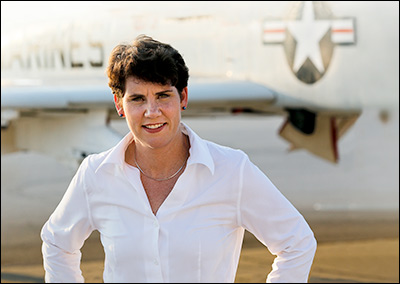Our daily column will return on Tuesday, July 7.
By Jim Ellis
July 2, 2020 — We saw a polling bonanza released yesterday in the swing battleground state of Arizona and, no matter who you support or what you believe, there is survey data for you.
Three pollsters released results that tested the presidential race and the Arizona Senate contest between retired astronaut Mark Kelly (D) and appointed Sen. Martha McSally (R). The three pollsters, all conducting their surveys within the June 26-29 period, gave us starkly different ballot test conclusions.Two of the pollsters are from out of state, while one is based in Phoenix and specializes in researching the Arizona electorate. One of the pollsters tested six battleground states as part of their national polling series, including Arizona, but did not disclose the size of the Grand Canyon State respondent cell. This makes analyzing very difficult. The other two firms revealed similar sized Arizona likely voter sampling universes.
The three pollsters were Change Research, Data Orbital, and Gravis Marketing. All have done national work and are published regularly in political blogs and websites as well as being frequently quoted in national news stories.
Despite testing the same electorate during the same time period, we see an 11-point swing in the presidential race, and a 13-point spread among the three survey results for the Senate race.
Change Research was the most bullish for the Democratic candidates, posting former vice president Joe Biden to a 51-44 percent advantage, and an even larger 53-44 percent margin in Kelly’s race.
Conversely, Gravis Marketing produced the most Republican results. They find President Trump holding a 49-45 percent lead and Sen. McSally up by the same point margin, 46-42 percent.
In between is Data Orbital, the local pollster. They find Biden ahead 47-45 percent, and Kelly up by a similar, but not as pronounced, margin as Change Research found, 50-43 percent.
Continue reading


 The early media time reservations are invested in five states: Arizona, Colorado, Iowa, Maine, and North Carolina. This is certainly not the limit of the SMP planned expenditures, nor is the organization likely committed to fulfilling the entirety of this time buy without having negotiated an escape clause. All depends upon their agreements with the individual television outlets and does not include any future expenditure the group may make for radio and digital advertising.
The early media time reservations are invested in five states: Arizona, Colorado, Iowa, Maine, and North Carolina. This is certainly not the limit of the SMP planned expenditures, nor is the organization likely committed to fulfilling the entirety of this time buy without having negotiated an escape clause. All depends upon their agreements with the individual television outlets and does not include any future expenditure the group may make for radio and digital advertising.

 • Gov. Steve Bullock: As has been expected for some time, Montana Gov. Steve Bullock (D) officially announced his presidential effort this week, becoming the 23rd Democratic candidate. Bullock made the argument that he will be an effective national candidate because he’s won two elections in a conservative state and has been able to earn legislative achievements, like Medicaid expansion, in negotiating with Republican leaders.
• Gov. Steve Bullock: As has been expected for some time, Montana Gov. Steve Bullock (D) officially announced his presidential effort this week, becoming the 23rd Democratic candidate. Bullock made the argument that he will be an effective national candidate because he’s won two elections in a conservative state and has been able to earn legislative achievements, like Medicaid expansion, in negotiating with Republican leaders.